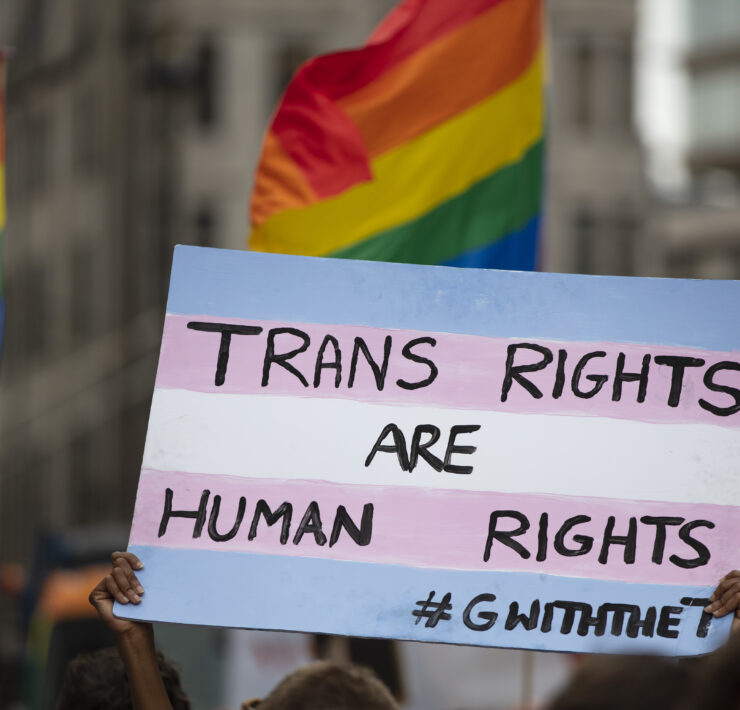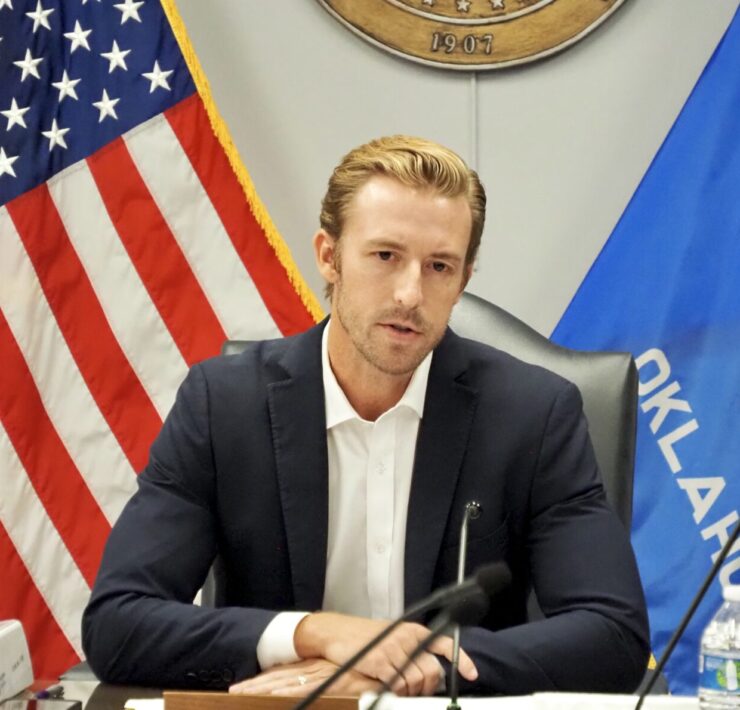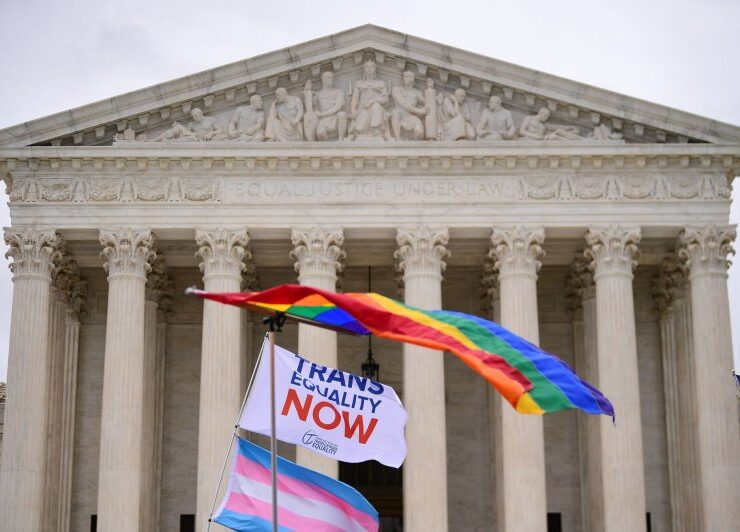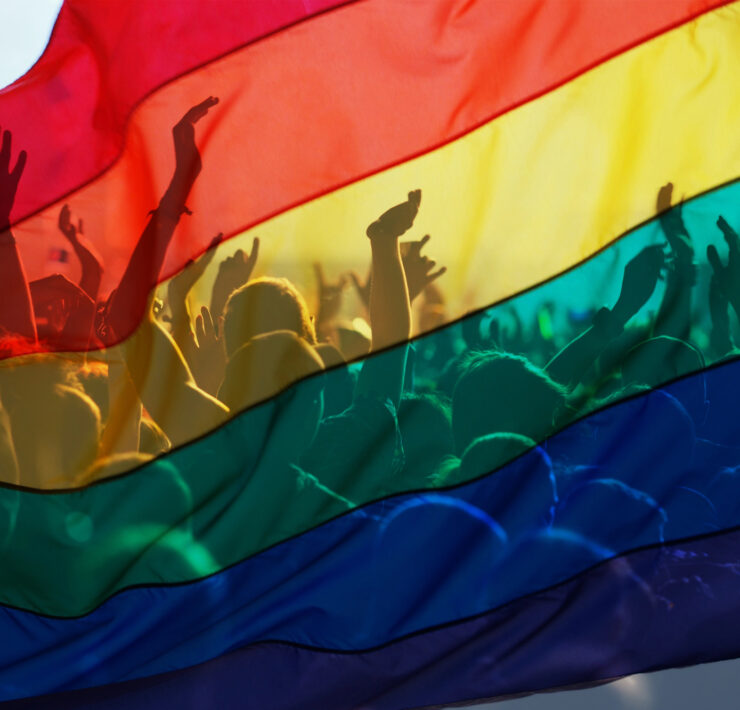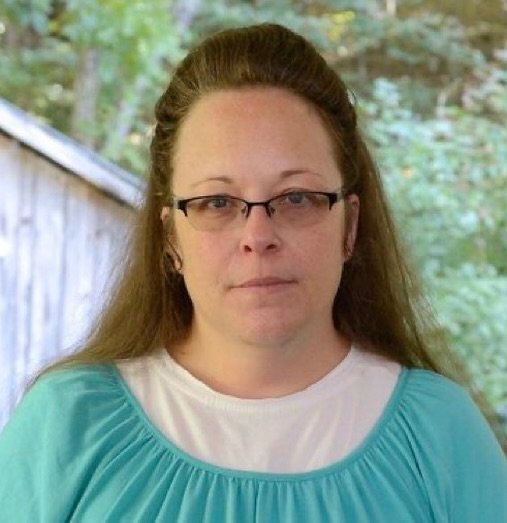SCOTUS Unanimously Rules Religion Over LGBTQ Rights

OUTFRONT Magazine Intern. Studying Journalism and Political Science at the…
In a shocking decision last week, the Supreme Court unanimously ruled against LGBTQ rights in favor of religious liberty. Queer organizations were left flabbergasted by the verdict that proved that in the U.S., the rights of LGBTQ people are, in fact, subject to exemptions.
Fulton v the City of Philadelphia was brought to court when the city refused to renew a contract with Catholic Social Services (CCS) due to their refusal of prospective LGBTQ foster parents. Philly argued that the agencies flagrant violation of non-discrimination laws meant that it was not qualified to serve the city. CCS, in turn, cited the First Amendment, claiming that their religious liberties as a Catholic organization were infringed upon by the city’s decision. The case made its way to the Supreme Court, where the startling verdict was read on June 17, 2021.
The decision ruled that Philadelphia was in violation of the Free Exercise Clause of the First Amendment, noting that the agency should be allowed to serve “the children of Philadelphia in a manner consistent with its religious beliefs.”
“This case was never about religious freedom,” Rep. Pramila Jayapal (D-WA) says. “It was about cruelly discriminating against LGBTQ+ parents. Instead of ruling for equal justice under law, the highest court in the land just handed out a license to discriminate.” She joined the majority of her democratic congresspeople in condemning the SCOTUS verdict.

“The constitutional right to religious freedom protects the sanctity of personal belief,” agreed Katy Joseph, director of policy & advocacy for Interfaith Alliance. “However, that freedom ends when the exercise of one’s faith would harm the rights or well-being of another. This decision vastly distorts our first freedom by allowing faith-based providers to needlessly restrict the pool of prospective foster and adoptive parents, forcing vulnerable children to suffer the trauma of state care longer than necessary.”
The success of CCS is due almost entirely to a small loophole in Philadelphia’s anti-discrimination laws. The city’s contract with adoption and foster agencies forbids discrimination on the basis of a slew of issues including sexual orientation, but leaves flexibility by allowing city officials to make exemptions. The Supreme Court Justices argue that, in this case, an exemption must be made on the basis of the religious beliefs of the Catholic agency.
Written by Chief Justice John Roberts, the decision was signed by Justices Stephen Breyer, Sonia Sotomayor, Elena Kagan, Brett Kavanaugh and Amy Coney Barrett. Career liberals Breyer, Sotomayor, and Kagan surprised and disappointed queer advocacy groups by joining the decision without dissent. Justices Clarence Thomas, Samuel Alito, and Neil Gorsuch didn’t sign the majority decision, opting to file three different concurring decisions instead. Their opinions would’ve exacerbated the ruling, calling the majority decision “excessively timid and so narrow as to be meaningless.”
It also shouldn’t be overlooked that 6 of the 9 sitting justices are Catholic.
“Government fails to act neutrally when it proceeds in a manner intolerant of religious beliefs or restricts practices because of their religious nature,” the court noted, but they failed to address how their own religious values might have warped this so-called “neutrality.”
Although this verdict was relatively limited in scope, legal experts and LGBTQ advocates alike worry that a new precedent is being set for similar cases going forward. The Fulton decision and the Masterpiece Cakeshop ruling in 2018 have made it clear that discrimination on the basis of religion is allowable, and will be upheld even in the highest and most respected U.S. courts.
The Supreme Court really said “f*ck Pride” with its full chest this morning ????️????
— Zach Stafford (@ZachStafford) June 17, 2021
The conclusion of Fulton relied heavily on material from the Masterpiece Cakeshop Colorado case. In Masterpiece, the plaintiff, Jack Phillips, said he had been mistreated by members of the state’s civil rights commission who had expressed hostility toward religion. CCS claimed similar treatment had been levied against them by the city of Philadelphia. Conservative Justices Thomas and Alito attempted to use this claim to reconsider the Obergefell v Hodges verdict that federally legalized same-sex marriage, claiming that the ruling “stigmatized people of faith who objected to those unions.”
Thomas and Alito’s drastic move, while unsuccessful, has left LGBTQ activists distraught for what the Fulton decision could kick off. They fear that these smaller, specific disputes of religious rights vs. queer rights could quickly spiral into an all-out assault on human rights if legislators don’t act quickly to uphold anti-discrimination laws and nix their loopholes.
The Supreme Court just ruled that the "right" to discriminate against LGBTQ+ people supersedes our right to equality, giving groups receiving government funds a license to discriminate.
With our basic rights under attack, we must #ExpandTheCourt. https://t.co/VTKP6umhP0
— Mondaire Jones (@MondaireJones) June 17, 2021
What's Your Reaction?
OUTFRONT Magazine Intern. Studying Journalism and Political Science at the CU-Boulder. An unabashedly blue-haired, queer, leftist feminist. Ask me about my agenda!



